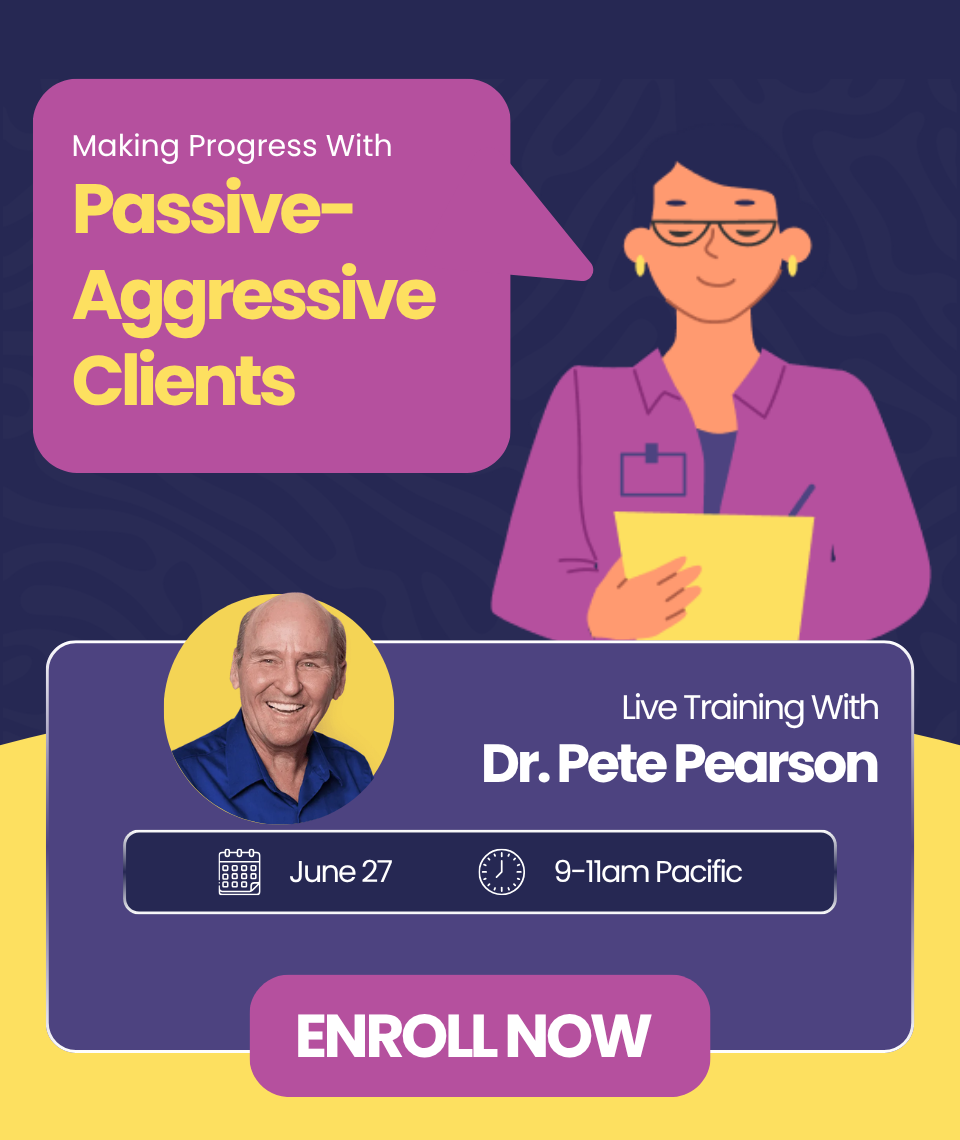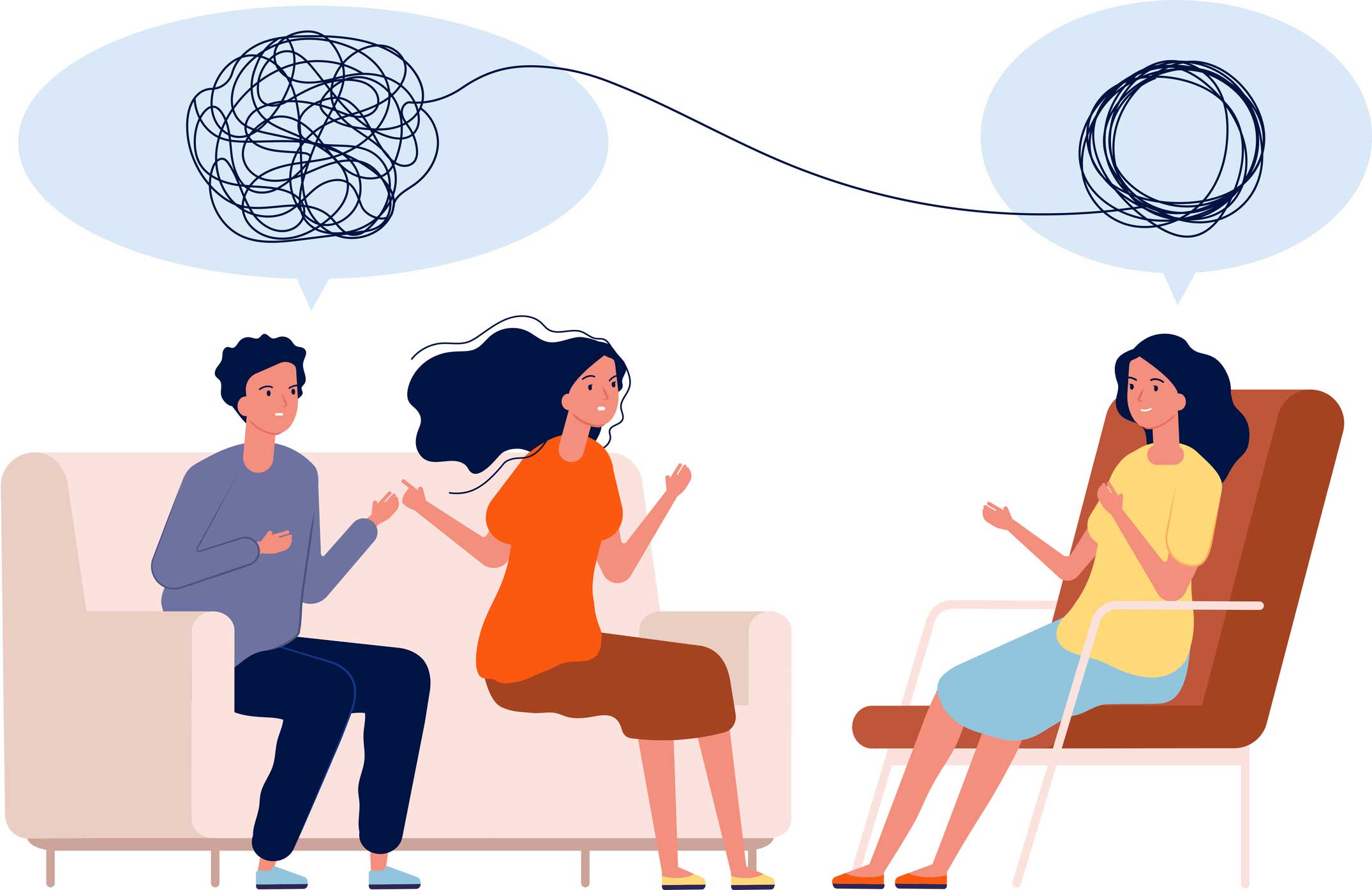by Richard Landis, Ph.D.
This article was originally published in the Spring 2004 issue of The Milton H. Erickson Foundation Newsletter.
Dr. Ellyn Bader is Co-Founder & Director of The Couples Institute in Menlo Park, CA. They are often considered to be among the leading experts in couples' therapy training the world today. Dr. Bader spent eight years on the clinical faculty in the Department of Psychiatry at Stanford University School of Medicine. She and her husband are the authors of the classic “In Quest of the Mythical Mate: A Developmental Approach to Diagnosis and Treatment in Couples Therapy,” and most recently, “Tell Me No Lies.” While she was preparing for this spring's conference, “Challenging Couples, Challenging Therapists,” I spoke with Dr. Bader.
Landis: In 1995, you cosponsored with the Erickson Foundation the “Integrating Sexuality and Intimacy” conference. What was it that stimulated you to connect with the Foundation to produce such a thing?
Bader: It was a lot of things. First there's my passion for wanting people to get good training in the area of couples therapy. Also my own work had a lot of emphasis in the area of differentiation, and I knew that there were a number of approaches that were focused more on attachment-related issues, and I wanted to have a forum for those to be dialogued more completely. So we invited a number of experts in this arena to discuss all these approaches.
Landis: You've always had a passion about working with groups. I found it interesting that you started out with larger groups and came down to focusing on couples.
Bader: I started out being very politically active, a community organizer, actually getting a degree in community psychology as well as clinical psychology. I worked with a lot of non-violent, political organizing and with health clinics. And then I moved into doing more family therapy and eventually focusing on couples.
Landis: You had mentioned that you and Jeff were working with Joan Baez. What was that about?
Bader: Well, I strongly encouraged Jeff Zeig to come to California with me in 1969 to attend a program at the Institute for Non-Violence, which was founded by Joan Baez. And, later on, I strongly urged him to move to California.
Landis: Where did you meet Zeig?
Bader: In Michigan. We both went to Michigan State University together, and actually Steve Lankton was there at the same time, too. Anyway, I convinced Zeig to move to California with me, and I was coming here to work for the Institute for Non-Violence, and Jeff came, too. We both ended up working at a psychiatric hospital part-time and working for the Institute for Non-Violence the rest of the time.
Landis: Would you tell me a bit more about your work with Joan Baez?
Bader: Yes. She was one of two people who founded the Institute for Non-Violence. It was set up to teach people the concepts of non-violent political organizing and also to do non-violent political organizing. So one of the projects that we did was a community-based medical clinic, and we did a little, tiny bit with the United Farmworkers clinic in Delano, and ran seminars teaching people the concepts of non-violent political organizing.
Landis: Did you know you were going to be a therapist then?
Bader: Well, I left a PhD program where I had a fellowship, so I'd started in Michigan to become a therapist. I dropped out of school to do some anti-war work for a few years and then went back and finished my degree.
Landis: It sounds like an interesting journey from that point to the conference in '95. That has stood out as a landmark conference. You got everyone there.
Bader: In spite of running those political seminars together all those years, Jeff and I hadn't done anything together since then–until we did the conference. I think it was probably the strength of what we'd done together in our early years that made him feel confident that this format would be successful and that it was okay to co-sponsor this conference.
Landis: And it was extraordinarily successful. That brings us to the upcoming conference. The original conference was titled “Integrating Sexuality and Intimacy: The Challenge of Treating Couples in the '90s.” I thought the title of it was brilliant, because the pre-supposition under it was that sexuality is often used to avoid intimacy. What brought about the theme for this one?
Bader: The theme for this one came about because I think that there are many “problems” that couples have to deal with, such as someone has an addiction or somebody has ADHD, or someone in the couple is Narcissistic. These are issues that all of us have learned about in the individual context but there hasn't been a lot done about how do you deal with them in a couples' context. So what I wanted to do, which was different in this context over some of the others, was to take some of those “individual issues” or “individual problems” but look at them in the couples' context.
Landis: Had you seen this actually done before?
Bader: No.
Landis: I hadn't, either, especially there's one that you're doing about Narcissistic relationships. I have not seen anything written about it within a couples' context.
Bader: It impacts the couples' relationship a lot. Another one that you rarely see talked about is somebody who has a significant amount of ADD. I wanted this conference to specifically isolate various individual presenting problems and look at what happens when they come in as a couple, how you work in that arena.
Landis: How do you differentiate treating a couple from treating an individual?
Bader: One difference is that, usually, when someone comes in for individual therapy, they're self-referred and they want to be there. In the couples' context, often people are there because they want to change the partner rather than change themselves. They come in much more resistant to looking at themselves. Their process is more finger-pointing than seeking personal change for themselves. The therapist has to be equipped with a different set of skills to be able to deal with that type of resistance and shift some of the focus.
Landis: At the previous conference, you mentioned that in working with couples, if you're dealing with the process, then they wonder why you're not dealing with the content and vice versa. Is that different than in individual work, or does that have a different function in couples work?
Bader: In couples' work, the subject changes so fast, because as soon as someone feels like they're “losing,” or the other person's more powerful, they change the subject and bring up a different piece of content. If the therapist goes with what the other person brings up, then the client is more likely to complain that they're not getting anywhere. As a therapist you have to be faster on your feet at figuring out those things that are going to give the most leverage, and work with them, and be able to switch pretty quickly or find ways to integrate process and content so that the person cannot say to you, “Oh, we're only dealing with one of these things.”
Landis: No matter how much somebody has wanted to be in therapy and had an outcome they wanted to achieve, I have yet found patients who actually wanted change; they just wanted to feel better. There's always been some ambivalence surrounding change, because it seems like their definition of change was “to stop doing what you know and grab something you haven't done before.”
Bader: Right, a risk. It's often the case because somebody has something glaring that's problematic to the other person. They come in looking like they want change, but don't confuse the fact that the person wants change with whether or not the person wants to change him or herself. And it's true, because a lot of times, they are so invested in the other person changing that they don't want to look at themselves.
Landis: There were other differences that you had identified between working with individuals and couples, things that people who work with individuals need also to appreciate.
Bader: I think that when you work with an individual, the same skills just don't transfer to working with couples. Obviously, some of them do, but not all of them. I think that couples' work takes a much higher level of activity from the therapist, a need to structure things more.
Landis: If there is a way of generalizing it, when approaching the greater need for structure, do you create that structure based on diagnostic categories or some sort of category in your mind, or is there a universal structure of pegs that you would hang things on pretty traditionally, between which the individual differences would fit?
Bader: One of the ways I organize my work is to look at the four major arenas where you can push change on a couple:
1. Helping them clarify the type of relationship that they want to create and how they want to be as partners in that relationship;
2. Changing the process of how they interact with each other around stressful issues;
3. Understanding and working to ameliorate intrapsychic triggers;
4. Developing skills that the couple may be lacking.
So couples therapy is an interweaving of those four areas of change.
Landis: On the intra-psychic triggers, would you ever work with an individual to deal with those?
Bader: Yes, but I like to do it in the context of the couple. Occasionally, I will see someone individually, but I like to do intra-psychic work with the other person present because they learn so much. One method that I use a fair bit is Gestalt 2-chair work, and that's an example where I think that having a partner observe it and understand the struggle and see what the person is working through can make a big difference.
Landis: Do you ever have any difficulty with the partner being willing to be present?
Bader: Not too often.
Landis: On the other side, do you ever have any difficulty with the person who has these triggers being willing for the other person to be present?
Bader: Occasionally, but, again, not often. I think I'm good at trying to lay out both people's triggers before I move into that work. For example, I saw a couple today who are pretty new to me, I don't know them very well. Part way through the session, I said to her, “It seems to me like you feel pretty easily criticized by him, and when you feel criticized, you move into a spot where you feel like you're not worthwhile,” so I laid out her dynamics like that. Then I was also able to lay out his, because he gets very volatile and has a hot button about feeling controlled by her. Just laying those out side by side and saying, wouldn't it be nice if you weren't so easily triggered by these things, if you had more options? So, by the time you move into that, they already can begin to see that they could have more options, and that makes it much more like they're not an Identified Patient, and that they would be helping themselves.
Landis: It also seems as though, by identifying both partners' triggers in the presence of each other, that you are normalizing the process. You're moving away from there being an Identified Patient and towards how to facilitate each other's growth.
Bader: Right. Also, more and more, I have come to feel that it is very unprofessional and almost unethical to see a client if they're in a committed relationship and you've never met their partner. I think it's detrimental to treat them without knowing their partner
Landis: Oh, tell me more about that! That's delicious.
Bader: Because you know what the old psychoanalytical position is: you would never see the other person. The way I see it, when you have an individual person in the room with you, what they're telling you is their perception of the partner and what they believe to be true about the partner. Probably half of what they're telling you is true and half is not. The only problem is that you have no way of knowing which half is correct. I do a lot of supervision of therapists and I see a lot of examples where therapists have colluded with the negative view of a spouse and really destabilized marriages that didn't have to be destabilized because the therapist is aligned with the negative projection. And one partner can be very, very convincing in shifting the blame to the other partner.
Landis: Marvelously so. Then, if someone is in a committed relationship, and they come in as an individual, even if the partner has sent them in, you're saying that you'd still like the other person to be there to give feedback.
Bader: I at least would like to meet them once, and to hear their view of things. If not, it is often too easy for the client to become too closely connected to the therapist. When that happens, then they will be saying things to the partner at home like, “I don't want to talk to you about what I'm doing, I only want to talk to my therapist,” which makes the person at home feel even more marginalized and out of control.
Landis: Where did you come up with that one?
Bader: I guess out of my years of experience and seeing that I really would cringe at the way that certain therapist's were destabilizing relationships unnecessarily.
Landis: Was there a point in which there was an “aha!” or is this something that sort of sneaked up on you?
Bader: I think it's sort of evolved. Also, as I began, I sometimes asked people's partners to come in, and realized how differently they presented themselves to me or how differently they viewed things from how the partner presented them. Then I realized how striking those differences are.
Landis: Irrespective of whether we identify ourselves as a family therapist or an individual therapist or a couples therapist, if we don't actually meet the primary or secondary support systems with whom the clients are living, we're not really getting all of the information. We can inadvertently drive a wedge between the relationships rather than bringing them closer together.
Bader: Absolutely. And we make judgments all the time that are based on what only one person is telling us. Good relationships are precious and partners often have invested lots of time, energy, partnering and parenting in their committed partnership. I do not want to see individual therapists unnecessarily undermining what partners have already created.
Landis: So, this couples' conference isn't just for people who are interested in working with couples.
Bader: Absolutely. It will also shed insight into working with challenging individual dynamics!

 We respect your privacy.
We respect your privacy.



